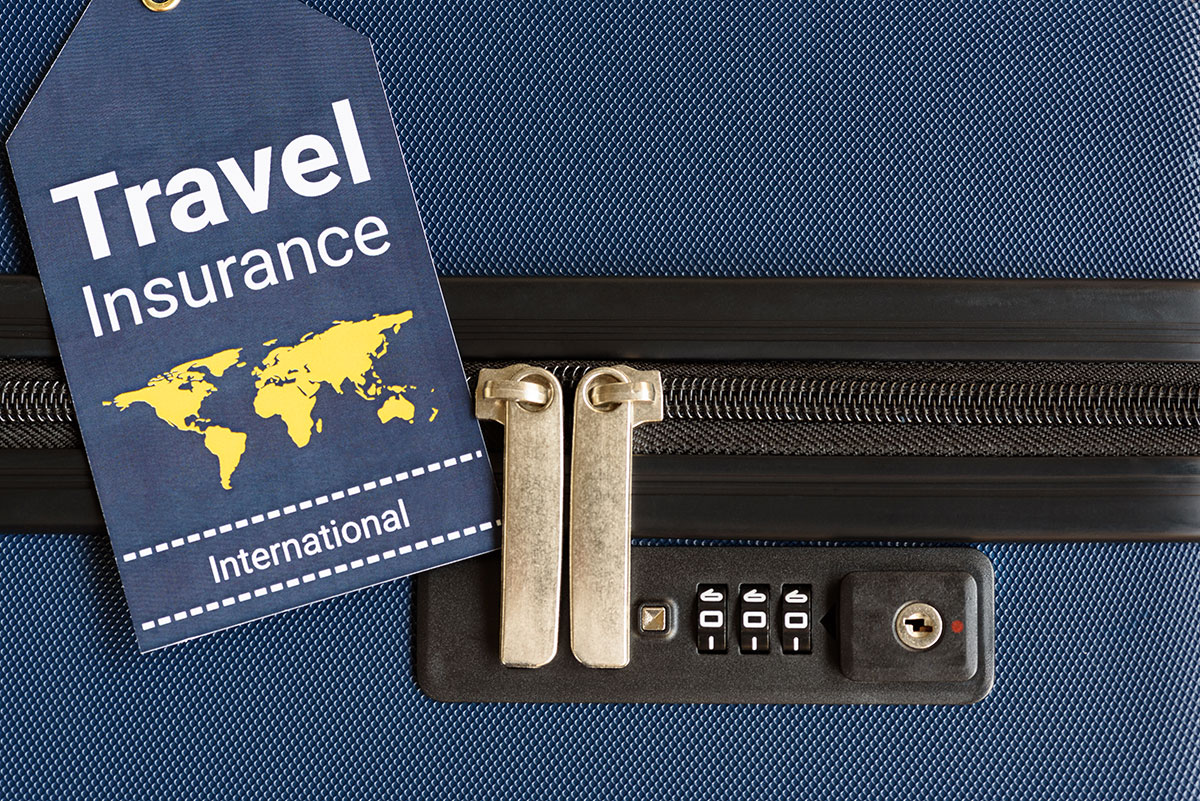Financially Savvy Tips for Traveling to Europe
It’s the new year and you’ve decided you’re going on a vacation to Europe — you’re going to have such a wonderful time! Before you start packing your bags and brushing up on your language skills from high school, let’s get real about finances and talk about a few financial tips for traveling.
Travel is one of those things that can quickly add up if you aren’t careful, but it is also completely attainable, even on a limited budget. You probably know people who are always on the go. Were they born with a trust fund? Maybe. Or they might just know more budget travel tips than you do. We’ve compiled some of our top financially savvy tips for traveling to Europe, so that you can go on the vacation you deserve without breaking the bank.
Create a Budget

Budget Basics
At the top of our list for financial tips for traveling is creating a budget. This isn’t about wiping out your dreams of seaside villas or city penthouses right from the beginning, but it is about framing your decisions from the start. Creating a budget helps you see where your finances are, so you can make informed decisions later about destinations, accommodations, activities, and more.
One thing to note about budgeting, for trips or otherwise, is that it may not be in your best interests to pinch every penny if this is something you are not accustomed to or if you know you will not be able to stick to that budget. Try to be realistic in your expectations for yourself.
Currency Conversions
While you are making your budget, begin to think about the places you would be interested in visiting. At present there are 28 countries in Europe that are members of the European Union. Most of these countries use the euro (EUR), which is a stronger currency than the United States Dollar (USD). When you are choosing where you want to vacation, be mindful of the conversion rates. Choosing to go somewhere with a weaker currency than USD will make your dollar stretch further.
Our favorite choice? Croatia, whose currency is the kuna. 1 Croatian kuna is currently 15 US cents. The exchange rate is Croatia is quite favorable and it’s a beautiful country. It is easy to get to Croatia from Italy, if you want to knock out two beautiful countries at once.
Pick the Destination(s)

Study after study has revealed that Americans do not take all of their vacation days, which results in billions of dollars left on the table every year. What this does to our collective mental health is a topic for another post, but what it means is that we effectively have less time for vacations…which can lead to trying to pack everything into a one-week time span. In terms of sticking to a budget, city- or country-hopping every other day can be problematic.
Minimize Transfers
One of your biggest travel expense categories will be transportation. Airfare can easily eat up to a third or more of your total budget. Accommodations may have one-time cleaning or service fees that will rack up the more you move around. Try to minimize the transfers to cut back on those unnecessary expenses. Staying longer in one or two places will also allow you to engage with the culture on a deeper level.
Honing in on the Cities
Beyond choosing which country or countries you want to visit, look at the cities within those places. Touristy destinations like London, Paris, Copenhagen, and Amsterdam will be more expensive than other cities within those same countries.
When to Book
Another of our top financial tips to traveling is booking smart.

Season
If you’re from the Charleston or Mount Pleasant area, you know how tourists flock to our location every summer. Be mindful of this when you’re booking travel to Europe as well; spring and summer are when most people travel, so the price of everything from flights and accommodations to food and ride-sharing services goes up. If you’re on a budget, book during the off or shoulder season to avoid those increased prices. Do note that prices will go up around holidays, but after the first of the year, January is generally a cost-efficient time to book travel to Europe.
One extra note: Don’t go to Milan (or most other parts of Italy) in August; almost everything is shut down so that the locals can vacation. We learned that one the hard way!
Booking Timeframe
The closer you book to the time you need the service, the more expensive it will be. Many people cite booking international flights five to six months out and hotel accommodations even further in advance. In this timeframe, chances are good that you can score a roundtrip international flight for less than $600! The caveat to this is that there will sometimes be error fares or extreme sales at the last minute, but betting on these occurrences is generally not advised. This is not as much of a concern for things like tickets to special events or ground transportation, as these prices tend to be a little more stable.
Where to Stay
Knowing where to stay also tops our list for financial tips to traveling.

In the City
After you’ve selected the cities you want to visit, it’s time to narrow down where in those cities you want to stay. Accommodations within the city center are going to be more expensive than options on the outskirts. With that said, it’s important to keep in mind that staying outside of the city will mean higher transportation and time costs. It may be worth it to pay a little extra for staying closer to where you want to be so that you can cut back on transportation costs and maximize your time in the area.
Accommodations
When it comes to accommodations, you have many options of varying levels of budget-friendliness. Hotels – especially the name brands that Americans are most familiar with – will likely be the most expensive option, followed by home-sharing services like Airbnb and VRBO. Next, you have private rooms in hostels (they exist for all age ranges). Finally, you have some free options, like staying with a friend or relative who happens to live in your vacation spot, finding a Couchsurfing host, or locating a homeowner who needs a house sitter for the duration of your stay. With most of these options, prices will go up closer to the date you need them.
Our favorite choice? Staying with a friend or relative! But if that’s not an option, we’ve had great luck with Airbnb and Small “Bed & Breakfasts.” Booking.com is a great spot to view many different options and read reviews.
What to Do

If you know there are a few cultural activities you absolutely must do, book those early to avoid being locked or priced out later. After that, search for some free or reduced-price activities. If you are traveling with students or people under 26 (or if you fit into either of those categories), there are plenty of cultural attractions that offer reduced prices for youths and students.
If you want to do a guided tour, you may want to opt for a nontraditional tour company, like Airbnb Experiences or eatwith. These kinds of providers will sometimes offer more cost-effective options with a more authentic perspective.
In addition, try to limit your shopping in the touristy or uber-convenient areas. Especially with food, you will find better prices (and more authentic cuisine) away from the places that draw tourists.
Finally, travel blogs, Pinterest boards, and Facebook groups can also provide some inspiration. These resources may also give insight into activities you may want to avoid, for reasons like overcrowding or general lack of value.
Getting Around
You can’t forget about transportation when considering financial tips for traveling.

Public Transportation and Ride Sharing
Many cities in Europe have well-developed public transportation that is faster and cheaper than other transit options. Depending on how long you’re staying in one place and how much you need to move around, it may be worth it to get a weekly or daily unlimited pass for metros and buses.
If you need to use a ride-sharing service instead of public transit, booking in advance can be cheaper than requesting a ride in the moment you need it. You can also choose to ride with others, like with Uber Pool or BlaBlaCar.
Budget Transportation
For movement between cities and countries, there are many options for budget buses, trains, and airlines. Companies like Flixbus and Regiojet operate throughout Europe and offer budget fares for buses or trains. The same goes for airlines like Ryanair, Vueling, and EasyJet.
However, bear in mind that budget transportation companies will not provide you with extras. Checked baggage will almost never be included, carry-on bags may come with a fee, canceling and rescheduling is severely restricted, and these carriers may take you to airports or bus stops that are farther away from your final destination than full-price carrier locations. Be cognizant of when transportation strikes for your intended countries typically happen, as these may interrupt your travels and budget carriers tend not to be accommodating.
Want a bag that European airlines have allowed as a free carryon? Tiffany cannot recommend this bag enough: Patagonia MLC 45L. It packs like a normal suitcase but can be carried like a backpack. If you plan on flying within Europe, the cost of this bag could be worth it just to save the checked bagging fees. If you’re physically able to carry your clothes “backpack style,” then consider this, because European cobblestone streets aren’t the most forgiving for a rolling suitcase.
To find budget transportation, check out sites like Kiwi.com, Skyscanner, Scott’s Cheap Flights, Omio, and Trainline.
Travel Insurance
Last but certainly not least, rounding out our financial tips for traveling is travel insurance.

Just like insurance for anything else, travel insurance can help you out of a bind or it can be an expense whose value you never realize. If you’re booking larger trips or you have a trip with many moving parts (people arriving and departing from different locations, several countries to visit, etc) it’s not a bad idea to protect your travel investment with insurance, even when your budget is limited. If you do have to use it, travel insurance will save your finances in the long run.
Working with a Travel Advisor
Travel advisors are an added expense, but they can provide value that exceeds their price. Depending on your overall budget, it may be worth hiring a travel advisor, because they can get you special access to events, hotels, and transportation services that would cost you much more if you were to do it on your own. Plus, they have usually either experienced what they are recommending to you firsthand or they are part of a travel consortium that vets service providers to ensure that you receive the value you expect.
Extras
Phones
Before you go on your holiday, think about how you will stay in communication with people back home and those who are going on the trip with you. Look into rates for changing to an international phone plan for the period that you are abroad, consider getting a foreign SIM card, or go with a prepaid data plan.
Food and Special Items
If you know you need specific medications or you want certain products for your travels, get them ahead of time. It may be more expensive or difficult to get medications abroad and local stores may not carry the brands you are used to.
Travel and Financial Planning
Travel and financial planning go hand in hand.

All of the financial tips for traveling mentioned above are really part of a larger conversation about financial planning. Our team at Morris Financial Concepts does not believe in scrimping and saving just for the sake of having money stored away; financial planning is about aligning your finances with your goals for your lifestyle. Meticulous planning paves the way for financial freedom, which in turn means that you can do the things you want to do both for yourself and for those you care about most.
If you would like assistance in wealth management and planning, our financial advisors are here to help. Together, we can create a comprehensive plan to help you reach your goals, travel-related, or otherwise. Learn more about our services, including financial planning in Charleston and tax planning in Mt. Pleasant, and get in touch with a Certified Financial Advisor today.
The opinions expressed herein are those of Morris Financial Concepts, Inc. (“MFC”) and are subject to change without notice. This material is for informational purposes only and should not be considered investment advice. MFC is an independent investment adviser registered under the Investment Advisers Act of 1940, as amended. Registration does not imply a certain level of skill or training. More information about MFC including our investment strategies, fees, and objectives can be found in our ADV Part 2, which is available upon request. MFC-20-01


